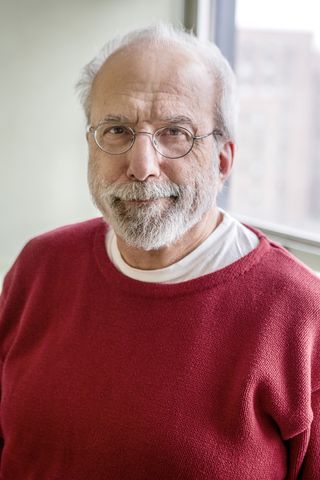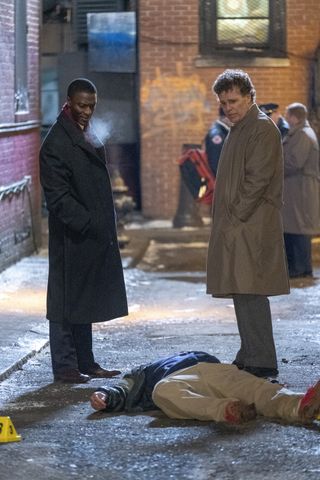Showtime Drama Has Trouble Bruin in Boston
City on a Hill, a crime drama starring Kevin Bacon as a corrupt FBI veteran facing down a lively crime scene in early 1990s Boston, premieres on Showtime June 16. Ben Affleck and Matt Damon are executive producers, and Tom Fontana is executive producer and showrunner.

Fontana has worked on St. Elsewhere, Oz and Homicide: Life on the Street. He was drawn to City on a Hill, created by Chuck MacLean, for the chance to dive into hot issues that continue to vex Americans, and to examine the so-called Boston Miracle. Showtime has put the premiere online, including YouTube, for free.
“I think the show is a really fun ride,” Fontana said. “But you have to strap yourself in, because it’s a roller coaster.”
MCN: Where did the idea for the series come from?
Tom Fontana: Ben Affleck was doing research for his film The Town. The Town, of course, is contemporary, but he came across a story from the 1990s about a heist, and he thought it was a really interesting idea. Ben brought in Chuck MacLean. They pitched it to Showtime and Showtime bought it.
MCN: Were Ben and Matt Damon very much involved after that?
TF: I can’t say they were very involved. Maybe I’m flattering myself, but I’d like to think they hired me to be the showrunner so they didn’t have to worry.
MCN: What attracted you to the project?
TF: Chuck’s writing in the pilot was exceptional. I’m always attracted to character pieces and I found the characters incredibly compelling.
I also think the themes of the show, like racism, government corruption and misogyny, are very current in the world we live in today. Because it’s got this period sensibility to it, we’re able to deal with these issues without being polemical or preachy.
Multichannel Newsletter
The smarter way to stay on top of the multichannel video marketplace. Sign up below.
MCN: That makes City on a Hill relevant in 2019?
TF: I think so. What’s so funny about it is you take something like misogyny, and the hardest part about writing about it has been that you can’t give it a 2019 sensibility. You can’t have people talking about #MeToo. It was very tricky writing it and being able to maintain an honesty about the period but also being able to confront the issues we’ve been dealing with.

MCN: Did you do anything to get yourself into the 1992 mindset?
TF: Fortunately, I’m so old that I remember 1992. It wasn’t that hard for me to go back there.
I did a lot of reading and looked at a lot of newsreels. We weaved a lot of things into the texture of the show, like Rodney King, Larry Bird, the presidential election that year.
MCN: Tell me more about Boston in 1992.
TF: There was an enormous amount of gentrification. Neighborhoods that had one ethnic group in them for generations were being bought up by wealthy … back then we called them yuppies. People were forced to move out of neighborhoods that their families had lived in for generations.
There was a series of incidents in Boston that really set the tone between the police and the black community. There was so much gun violence, prejudice and police brutality that various communities in Boston — African-American ministers, the police department, the mayor’s office, the DA, neighborhood watch programs — came together for the first time in Boston history. They said, “All we’ve been doing is blaming each other. Maybe we should start to work together. Let’s each do what we do best and coordinate it amongst ourselves.”
From 1992 to 2000, gun violence in Boston was reduced by 85%. It was called the Boston Miracle. That’s a large part of the ongoing story of the series.
MCN: What do hit TV shows have in common? What do they do right that the non-hits don’t?
TF: If I had the answer to that I’d be beyond happy! For me, it’s interesting characters. I like characters that I’m curious about, not necessarily people that I like. You can’t do a show like [prison drama] Oz and have everybody like those characters. There are a lot of fascinating characters in City on a Hill. Audiences like to get engaged by a character and their journey. We want to know more about that character and where he or she is going.
MCN: Do you have a moment, a scene in the first season that you feel is a highlight?
TF: That’s like saying to a father, who’s your favorite kid? There are a lot of great moments. Each episode has at least one where you say, pardon my language, holy f---!
Michael Malone, senior content producer at B+C/Multichannel News, covers network programming, including entertainment, news and sports on broadcast, cable and streaming; and local broadcast television. He hosts the podcasts Busted Pilot, about what’s new in television, and Series Business, a chat with the creator of a new program, and writes the column “The Watchman.” He joined B+C in 2005. His journalism has also appeared in The New York Times, The Philadelphia Inquirer, Playboy and New York magazine.

